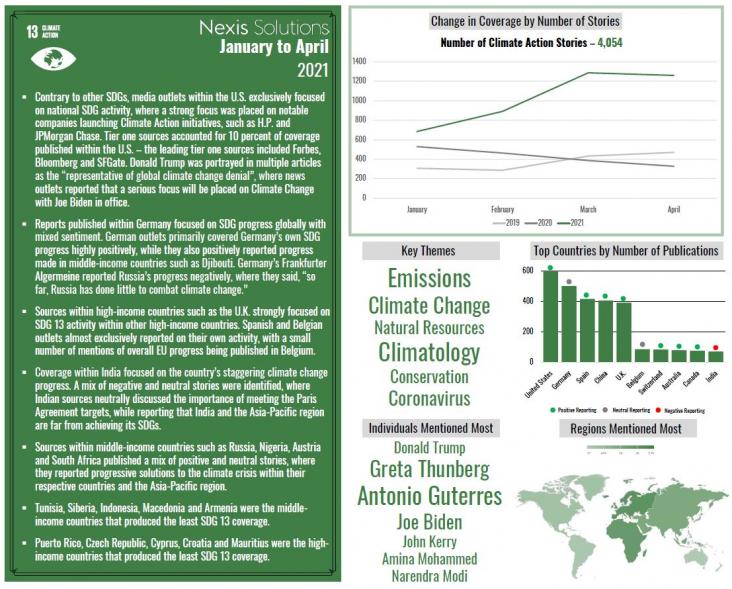

Nexis Newsdesk™ has created reports on the Sustainable Development Goals and the Global Media Landscape, offering charts & insights into global media coverage of the Global Goals.
Kunal Singha, Subhankar Maity, Pintu Pandit, Saptarshi Maiti, Shanmugasundaram O. Lakshmanan, Chapter One - Nanotechnologies for wastewater treatment, Editor(s): Subramanian Senthilkannan Muthu, In The Textile Institute Book Series, Sustainable Technologies for Textile Wastewater Treatments, Woodhead Publishing, 2021, Pages 1-12, ISBN 9780323858298, https://doi.org/10.1016/B978-0-323-85829-8.00009-2.
